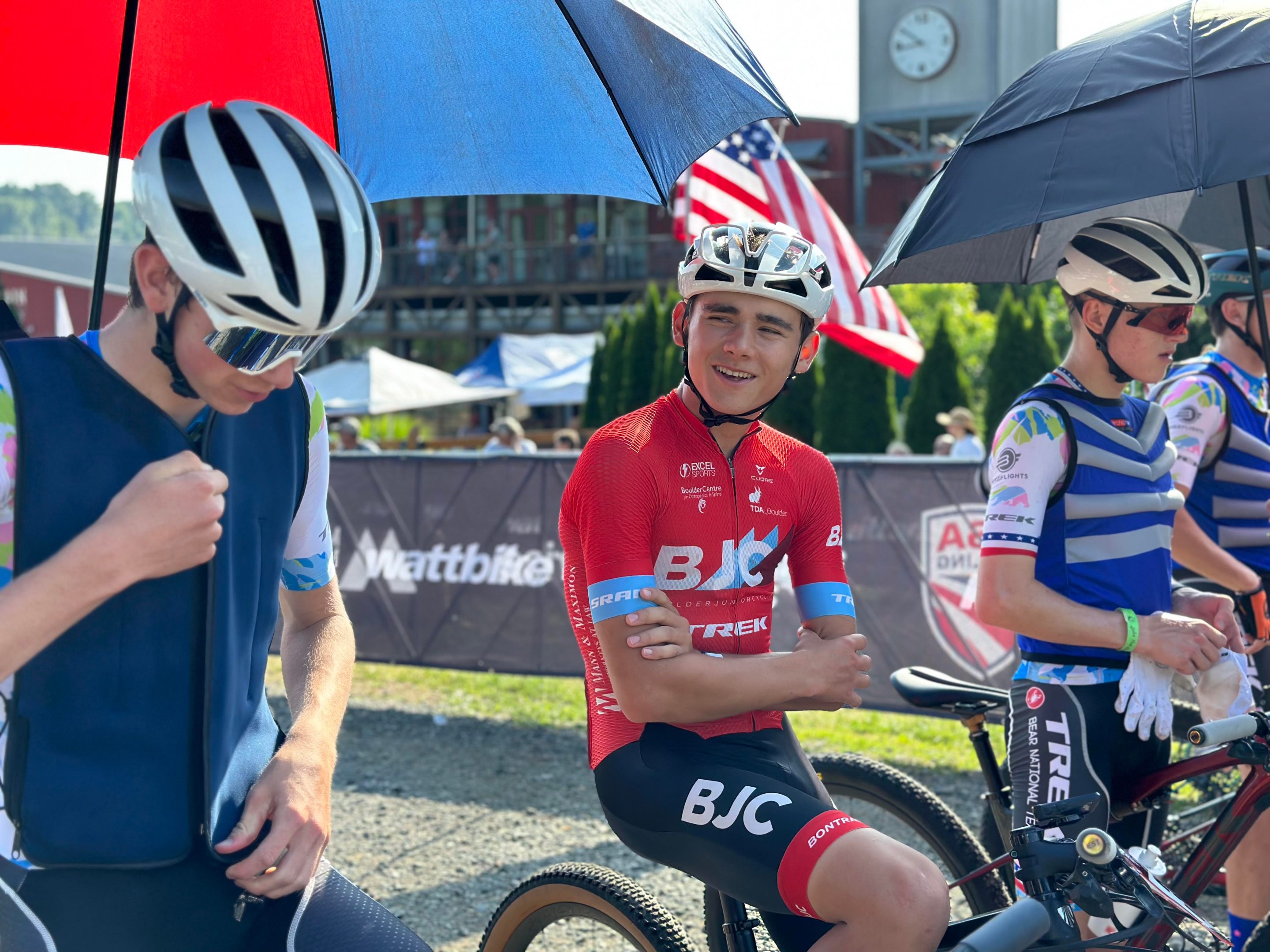Magnus White always loved to ride in the front of the pack. On the notoriously difficult terrain of the cyclocross course, the 17-year-old was known for pushing himself to get out ahead of the other riders, setting the pace for the race and daring everyone behind him to keep up.
“He loved to take the holeshot in races; he loved to be in front,” recalled his father, Michael. “So if you wanted to have the fastest line, you followed Magnus's line.”
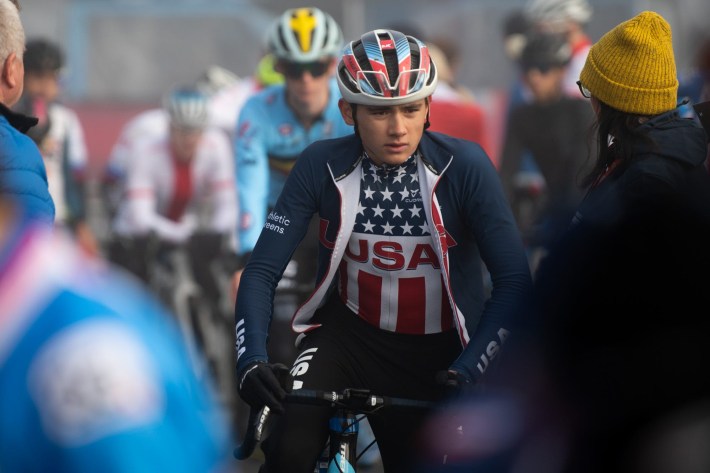
In cyclocross — a sport for which Magnus won a national junior championship title and competed all over the world as a member of team USA — the word “line” refers to the specific path a rider chooses to take between a series of highly technical obstacles, which might include everything from muddy embankments to treacherous sandpits to steep sets of stairs. It’s also an important term in road cycling — Magnus was a rising star in that sport, too — where it usually refers to a “paceline,” or a row of riders taking turns in the front, absorbing the force of the wind and creating a backdraft for everyone behind them.
For Magnus White’s parents, though, the word “line” now reminds them of something else: the line of paint at the edge of the road over which a motorist drove on July 29, 2023, striking and killing their son during a training ride near their Boulder, Colorado home.
That driver, Yeva Smilianska, claims she experienced a steering malfunction which caused her to drift out of her lane and onto the 10-foot shoulder, striking the teen phenom. Smilianska pleaded not guilty to vehicular homicide, but police said their inspection of Smilianska's vehicle found nothing wrong with it. And several witnesses say she did not even appear to be awake behind the wheel; investigators say she sent a text message to a friend just 20 minutes before the crash saying she was "falling asleep."
The White line
In the year since their son’s death, the White family has found itself thrust into the conversation about America's traffic violence crisis in a way unthinkable back when the family was merely watching Magnus competing and later standing on podiums all over the world. Soon, they learned that 1,084 cyclists were killed by drivers on U.S. roads in 2022 — the last year for which federal data is available, and the deadliest on record — and that experts fear 2023 was even worse.
Few of those losses, though, prompt the tsunami of attention that followed the death of a young cycling star and honors student who no fewer than a dozen different people counted as a best friend — and many are not covered by the media at all.
Michael, who works in advertising and marketing, says that Magnus’s story has inspired more than 3,300 articles and counting, and he estimates those articles have been read as many as 12 billion times. An outpouring from other families who have lost loved ones to traffic violence soon followed; an online fundraiser for the family raised nearly $150,000.
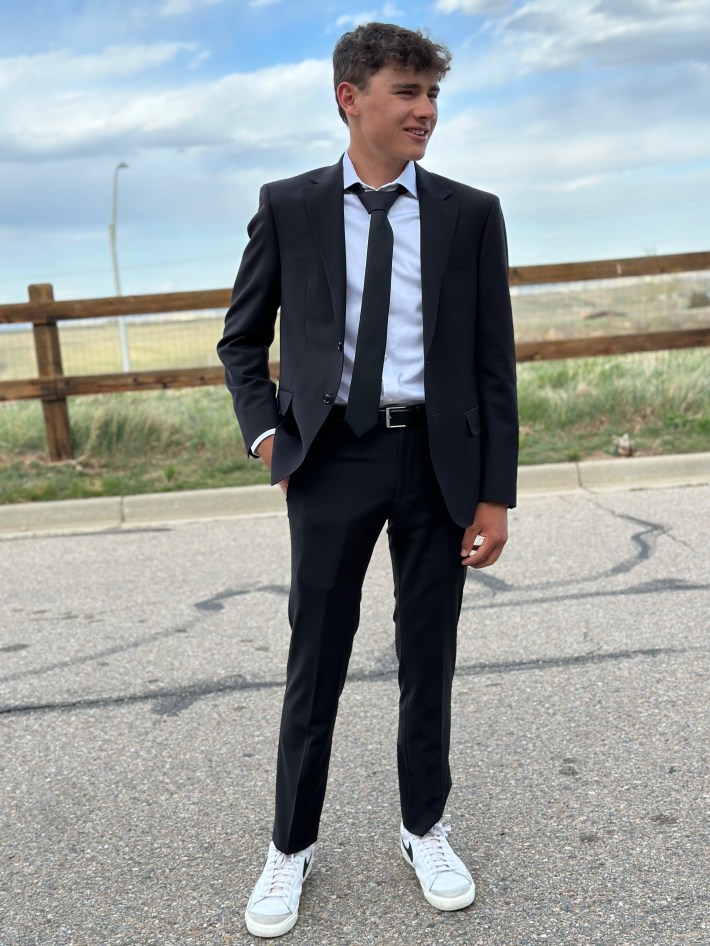
“We said, 'That's not our money; that is Magnus's money,'” said his mother, Jill. “So how can we use that money that people have given to Magnus to honor him and to make change, so something like this could have been prevented?”
The White family's eventual answer to that question was to create a new foundation in their son's memory — named, aptly enough, The White Line — which will fight for a raft of structural and cultural changes that they believe could have saved their child, as well as the lives of other riders in the future. And on Aug. 11, the White Line will mount its biggest push yet: the Ride for Magnus; Ride For Your Life, which the group hopes will become the biggest advocacy ride in U.S. history. (Cyclists outside Colorado are invited to participate virtually.)
That ride was inspired in part by the story of Sarah Langenkamp, a celebrated U.S. diplomat who was killed by a truck driver while she biked near her children's school in Maryland in 2022. Sarah's widower, Dan Langenkamp, organized the first Ride For Your Life later that year to urge Congress to mandate new truck safety regulations and secure more funding to fill the gaps in protected bike lane networks across America; he encouraged the Whites to turn their "grief into action."
"The truth is that we should all be watching Magnus on television win gold medals, not mourning his death and pleading with our leaders to do something about the pandemic of death on our roadways," Langenkamp told Streetsblog. "Honestly, if the death of one of America’s greatest future cycling stars doesn’t wake people up to the magnitude of this crisis, I don’t know what will."
Lives worth remembering
How to confront the sheer scale of that crisis, though, was a daunting proposition for a family with far more experience in the world of elite athletics than the complex universe of street safety advocacy.
Initially, the Whites' only goal was to share their own grief, in hopes that revealing the devastating — and largely invisible — impacts of traffic violence would urge motorists to drive safer. A documentarian friend has been filming them for months, and will continue to follow them throughout Smilianska's trial, which begins in December.
When they posted an early trailer for the film, though, the Whites were reminded again of just how many other families had endured similar nightmares. They've since produced two other short-form documentaries about cyclists who died in car crashes — Christian and Michelle Deaton, as well as Michael Shipp — in what they hope to be the first of a film series called Lives Worth Remembering.
The title for the series came from one of Magnus's notebooks, where he wrote, in response to an English assignment about his life's legacy, that he wanted to be remembered as "a fast bike racer who lived a life worth remembering."
“People are tagging us in social media posts all over the nation, just [asking us] to tell their stories," added Michael. "For us, that's just as important — because if people can see the human side of loss, maybe people can change.”
Roads worth making safer
Of course, Michael and Jill would rather that U.S. roads were so safe that no family would need to memorialize their loved ones — because they'd all make it home safely. Their experience, though, has opened their eyes to just how challenging that fight can be.
Shortly after Magnus died, the Colorado Department of Transportation announced the emergency installation of rumble strips on the road where he was killed, which despite being known locally as the "Diagonal Highway" or Colorado 119, Michael says counts among Boulder's most popular cycling routes. That announcement was soon followed by a star-studded press conference in which Gov. Jared Polis and Sen. John Hickenlooper appeared personally to unveil plans for a new protected bike lane along the stretch.

Michael spoke at the event as well, but his comments weren't all celebratory. He'd been told that because of the challenges of finding funding and approving a design for the project, the bike lane would take a total 16 years to complete — nearly as long as Magnus's life on Earth.
"They know where the Tier I hotspots are — and this was a Tier I hotspot, where there's a lot of bicycle traffic and a lot of vehicle traffic," he added. "The question we always ask is: why [only be] reactive? Why not be proactive?”
For Jill, that question is even more visceral.
“I always look out my window because we’re right by a very popular cycling route," she adds. "And when I see people riding their bikes, I just want to cry out — ‘You're not safe!'"
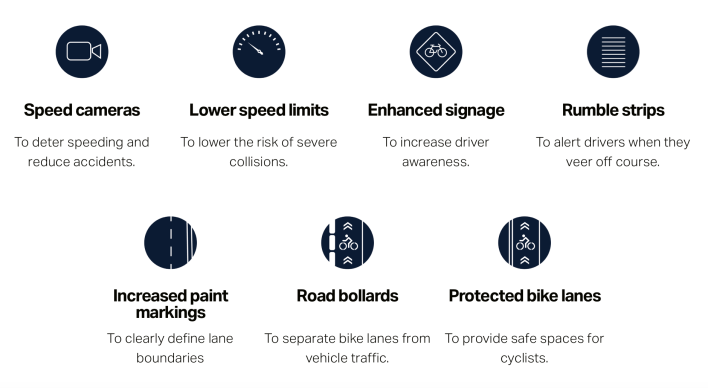
That's why one of the main purposes of the Ride for Magnus is to rally support for quick-build infrastructure solutions that can be put up in a matter of weeks or months rather than years. At the national level, the Whites are also fighting for cyclists to be included under Congress' recent mandate to add automatic emergency braking to all new cars, rather than only requiring technology that can detect pedestrians and other drivers.
And at the state level, they're hoping Colorado will reform its penalty structure for reckless driving, and become the "national model" for an enforcement approach that actually deters deadly behavior. Vehicular homicide — the charge that Smilianska is currently facing — is only a Class IV felony in the Centennial State, which means it carries penalties similar to crimes like check fraud and tampering with a water meter.
By the time the trial begins, the Whites will have waited nearly 18 months for justice, a delay they say has forced them to re-live their son's death again and again. They have been told it is possible that Smilianska will not serve jail time even if she is convicted.
Following the line
The White family is fully aware that the goals of the Ride for Magnus won't be easy to accomplish — even in Boulder, which routinely ranks among the most bikable cities in America, or even in Colorado, which has been celebrated for having one of the most progressive approaches to transportation in the country.
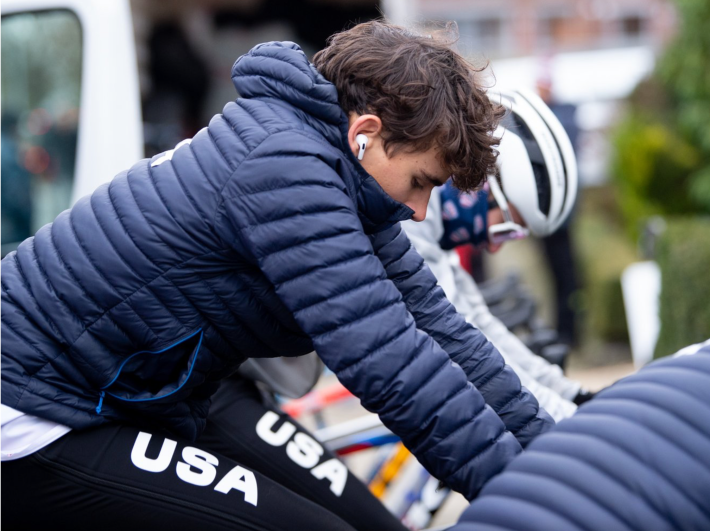
As strangers around the world mourned their son, some in their own neighborhood have posted hateful comments online about how Magnus should have stuck to Boulder's protected off-road trails — even as others point out the yawning gaps in that protected network, and maintain that protected lanes should be reserved for pedestrians and slower bike commuters. They know that Magnus's remarkable story and their foundation's unique demands may not fit neatly among the loudest voices in the Vision Zero movement, which tend to emphasize everyday travelers in cities and suburbs over daredevil athletes who will ride no matter the terrain.
Still, Michael and Jill stress that their son was far more than just a fearless young man in a Lycra kit. He was a star student with a 4.2 GPA who could have graduated early with just one summer class, but chose to take it easy so he could spend more time with his friends. He was a leader on the course and off, who helped show others the best path forward, and let them draft behind him when they needed to take a rest.
And most of all, they say Magnus was a child who deserved protection, and whom they still vividly remember as a little boy on a wooden balance bike. During their interview with Streetsblog, the parents were startled to realize that they'd each dreamt the night before about their son; he'd appeared as much younger child, sitting in their laps.
"I just woke up remembering his hair," Jill recalls. "He had such beautiful hair."
For more information on how to register and support the "Ride for Magnus; Ride For Your Life," visit The White Line.
